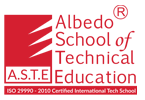Over the previous years, the gaming market has experienced a major change. The development of…
The Increase of Student-Driven Encyclopedias: Transforming Knowing Landscapes
In the ever-evolving realm of education, where information streams perfectly and access to understanding is just a click away, student-driven encyclopedias are emerging as a dynamic tool in the knowing process.

These platforms not just offer students with a repository of information but also urge them to add, modify, and curate material, fostering a joint and interactive understanding atmosphere.
As educational standards change in the direction of even more participatory and inclusive versions, the idea of student-driven encyclopedias personifies this transformation. These platforms equip pupils to become active individuals in understanding creation, linking the space between typical book learning and modern digital resources.
The Idea of Student-Driven Encyclopedias
Student-driven encyclopedias are electronic platforms where students jointly collect, validate, and disseminate details on a broad range of topics. Unlike typical encyclopedias, which are often created by experts, these systems leverage the joint efforts of pupils to create a thorough body of expertise.

At their core, student-driven encyclopedias are made to cultivate vital thinking, research abilities, and electronic proficiency amongst students. By participating in the procedure of content development, pupils learn to browse and examine information critically, abilities that are essential in today’s information-rich society.
Furthermore, these systems act as a room for students to discover their rate of interests and share their knowledge. This autonomous method to expertise production ensures that a diverse range of point of views and voices are stood for, improving the discovering experience for all individuals.
- Students acquire hands-on experience in study and web content production.
- Encourages partnership and peer communication.
- Advertises a much deeper understanding of subject.
- Fosters inclusivity and diversity in expertise depiction.
Essentially, student-driven encyclopedias change trainees from easy recipients of information into energetic factors, instilling a sense of ownership and obligation in their instructional trip.
Advantages of Student-Driven Encyclopedias
One of the primary benefits of student-driven encyclopedias is online learning the development of essential 21st-century skills. As pupils take part in the process of content creation, they hone their vital reasoning, digital literacy, and interaction skills, all of which are vital in today’s interconnected world.
Additionally, these systems motivate a collaborative discovering environment, where trainees can collaborate to confirm information, argument various point of views, and co-edit posts. This peer-to-peer interaction not only enhances finding out results yet additionally promotes a feeling of community and mutual regard among trainees.
In addition, student-driven encyclopedias use a platform for showcasing trainee job. As trainees add to the encyclopedia, they develop a profile of their study and writing, which can be indispensable for further academic and expert quests.
Obstacles and Limitations

In spite of the many advantages, student-driven encyclopedias also encounter specific challenges. Making sure the precision and dependability of details is critical, as these platforms rely on payments from students who might not yet possess expert-level expertise.
- Keeping material high quality and precision.
- Supplying appropriate supervision and guidance.
- Guaranteeing fair gain access to and inclusivity.
To minimize these difficulties, lots of student-driven encyclopedias carry out a system of checks and balances, where web content is reviewed by instructors or specialists before publication. This makes certain that the details presented is both accurate and reliable, promoting the honesty of the system.
The Future of Student-Driven Encyclopedias
As technology remains to advancement and the landscape Responde a las preguntas: ¿Cómo te llamas? ¿De dónde eres? ¿A qué te dedicas? ¿Tienes hermanos? of education advances, the possibility for student-driven encyclopedias is vast. These systems have the ability to not only complement traditional educational resources but additionally redefine the means understanding is gotten and shared.
In the future, we might see student-driven encyclopedias integrating advanced innovations such as artificial intelligence and artificial intelligence to boost material curation and personalization. Additionally, they may increase beyond textual information to include multimedia material, providing an extra immersive discovering experience.
Equipping the Future Generation
Student-driven encyclopedias hold the promise of empowering the next generation of learners. By putting students at the helm of expertise development, these systems motivate lifelong learning, curiosity, and intellectual self-reliance.
To conclude, as educational systems continue to innovate, student-driven encyclopedias stand as a testament to the power of collaboration and the importance of pupil agency in the knowing procedure. By embracing these systems, we unlock to an extra comprehensive, engaging, and dynamic educational experience for all.
